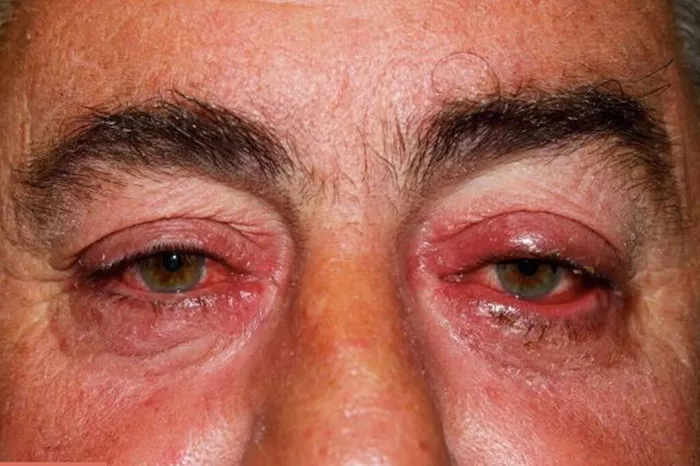Swollen, itchy eyes can be an uncomfortable and distressing condition that affects individuals of all ages. This symptom can arise from various causes, including allergies, infections, and underlying health issues. Understanding the root cause is crucial for effective treatment and relief. In this article, we will explore the different reasons for swollen itchy eyes, their symptoms, and detailed treatment options. We will also discuss preventive measures to help you avoid future occurrences. By the end of this article, you will have a comprehensive understanding of how to manage and treat swollen itchy eyes effectively.
Understanding Swollen Itchy Eyes
Swollen itchy eyes can manifest in various ways, often accompanied by redness, tearing, and discomfort. The swelling may affect the eyelids or the surrounding areas of the eyes. Identifying the underlying cause is essential for appropriate treatment.
Common Causes of Swollen Itchy Eyes
Allergic Reactions: Allergies are one of the most common causes of swollen itchy eyes. Allergens such as pollen, dust mites, pet dander, and mold can trigger an immune response that leads to inflammation and swelling in the eye area.
Infections: Infections like conjunctivitis (pink eye) or blepharitis (inflammation of the eyelid) can cause swelling and itching. These infections may be bacterial or viral and often require medical attention.
Dry Eye Syndrome: Insufficient tear production can lead to dry eyes, causing irritation and swelling. This condition is often exacerbated by environmental factors such as wind, smoke, or prolonged screen time.
Styes and Chalazia: A stye is an infection of an oil gland in the eyelid that results in a painful lump. A chalazion is a blocked oil gland that can also cause swelling and discomfort.
Health Conditions: Certain systemic health issues, such as thyroid disorders or kidney problems, can lead to swollen eyelids as a symptom.
Symptoms Associated with Swollen Itchy Eyes
Recognizing the symptoms associated with swollen itchy eyes can help in determining the underlying cause:
Redness: The whites of the eyes may appear red or bloodshot.
Tearing: Excessive tearing may occur as a response to irritation.
Discharge: There may be watery or sticky discharge from the eyes.
Burning Sensation: A burning feeling often accompanies itching.
Sensitivity to Light: Increased sensitivity to light may be present.
Swelling: The eyelids may appear puffy or swollen.
Treatment Options for Swollen Itchy Eyes
Home Remedies
Cold Compresses: Applying a cold compress can help reduce swelling and soothe itching. Use a clean cloth soaked in cold water and place it over your closed eyelids for 10-15 minutes.
Artificial Tears: Over-the-counter artificial tears can provide relief for dry eyes by lubricating them and flushing out irritants.
Saline Rinse: A saline solution can help wash away allergens or irritants from the eye surface. You can use pre-packaged saline eye washes or make your own with distilled water and salt.
Over-the-Counter Medications
Antihistamines: Oral antihistamines like diphenhydramine (Benadryl) or cetirizine (Zyrtec) can alleviate allergy symptoms, including itching and swelling.
Anti-inflammatory Eye Drops: Over-the-counter eye drops containing antihistamines or anti-inflammatory agents can provide quick relief from symptoms.
Decongestant Eye Drops: These drops reduce redness by constricting blood vessels in the eyes but should be used sparingly to avoid rebound redness.
Prescription Treatments
Corticosteroid Eye Drops: For severe allergic reactions or inflammation, a doctor may prescribe corticosteroid eye drops to reduce swelling and itching.
Antibiotic Drops/Ointments: If an infection is present, antibiotic drops or ointments may be necessary to eliminate bacteria causing conjunctivitis or blepharitis.
Immunotherapy: For chronic allergies that do not respond to other treatments, allergy shots (immunotherapy) may be recommended to desensitize the immune system to specific allergens.
Preventive Measures
Preventing swollen itchy eyes involves reducing exposure to allergens and maintaining good eye hygiene:
Avoid Allergens: Identify triggers such as pollen or pet dander and minimize exposure during high pollen seasons or after cleaning pets.
Maintain Eye Hygiene: Regularly clean your eyelids with warm water and mild soap to prevent conditions like blepharitis from developing.
Use Protective Eyewear: Wearing sunglasses outdoors can protect your eyes from wind, dust, and allergens.
Stay Hydrated: Drinking plenty of water helps maintain overall hydration, which is beneficial for eye health.
Limit Screen Time: Taking regular breaks during prolonged screen use helps prevent dry eyes.
Manage Allergies: If you have known allergies, work with a healthcare provider to develop a management plan that may include medications or lifestyle changes.
When to Seek Medical Attention
While many cases of swollen itchy eyes can be managed at home, certain situations warrant professional medical evaluation:
- Persistent symptoms that do not improve with home treatment.
- Severe pain or discomfort in the eye.
- Vision changes or loss of vision.
- Symptoms accompanied by fever or other systemic signs.
Conclusion
Swollen itchy eyes are a common issue that can arise from various causes ranging from allergies to infections. Understanding these causes allows for targeted treatment options that can alleviate symptoms effectively. By employing home remedies, utilizing over-the-counter medications when necessary, and practicing preventive measures, individuals can manage their symptoms successfully.
If symptoms persist or worsen despite treatment efforts, seeking medical advice is crucial to rule out more serious conditions and receive appropriate care. With proper management strategies in place, individuals suffering from swollen itchy eyes can find relief and improve their quality of life significantly.
By following this comprehensive guide on managing swollen itchy eyes, you will be better equipped to handle this uncomfortable condition effectively while prioritizing your eye health and overall well-being.
Related topic:
How Do You Get Rid Of Eyelid Sores?
What To Do With Saggy Eyelids?
How To Treat Swollen Eyelids Due To Allergy?

